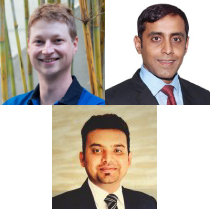
MIPS Special Seminar: Jubilant Biosys: Drug discovery and contract research services, from target discovery to candidate selection
Thomas Haywood, PhD
Head of International Radiochemistry Collaborations
Stanford University
Saurabh Kapure, MBA
Vice President, Business Development (USA & APAC)
Jubilant Biosys Limited
Jay Sheth, MBA
Manager Business Development, Drug Discovery Services, and CDMO
Jubilant Biosys Limited
LOCATION: Zoom
Meeting URL: https://stanford.zoom.us/j/98108346345
Dial: +1 650 724 9799 or +1 833 302 1536
Meeting ID: 981 0834 6345
Passcode: 397741
9:00-9:15 AM, PT – Thomas Haywood – Stanford Radiology projects
9:40-10:00 AM, PT – Moderated by Jason Thanh Lee – Discussion
ABOUT
Jubilant Biosys, an integrated contract research organization in India with business offices in Asia and North America, is a leading collaborator for biotechnology and pharmaceutical companies, with in-depth expertise in discovery informatics, medicinal chemistry, structural biology, and in vitro pharmacology services. Jubilant Biosys provides comprehensive drug discovery services and contract research services, from target discovery to candidate selection and with flexible business models (FFS, FTE and risk shared). This seminar will showcase case studies from recent Stanford projects and a discussion of future opportunities.
Sponsored by: Molecular Imaging Program at Stanford, Department of Radiology
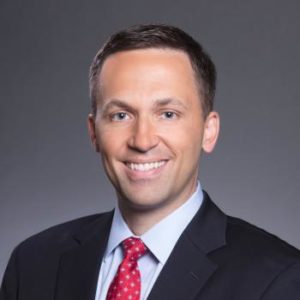
MIPS Seminar Series: Image-guided focal therapy for prostate cancer
Geoffrey Sonn, MD
Assistant Professor of Urology and, by courtesy, of Radiology (Molecular Imaging Program at Stanford)
Stanford University Medical Center
Location: Zoom
Webinar URL: https://stanford.zoom.us/s/96126703618
Dial: +1 650 724 9799 or +1 833 302 1536
Webinar ID: 961 2670 3618
Passcode: 186059
12:00pm – 12:45pm Seminar & Discussion
RSVP Here
ABSTRACT
In recent years, prostate cancer treatment has increasingly focused on selecting patients who are most likely to benefit and reducing harms from treatment. This has been seen both in adoption of active surveillance for men with low-risk prostate cancer and emergence of image-guided focal ablative therapy. While focal therapy causes fewer sexual and urinary side effects than conventional prostate cancer treatments, many questions remain about proper patient selection, treatment planning, and follow up care.
Improvements in prostate MRI performance and interpretation have paved the way for adoption of focal therapy. However, clinical challenges remain in prostate cancer imaging. This talk will describe prostate cancer focal therapy, discuss patient selection, and highlight the research efforts of my group to improve MRI interpretation to guide biopsy and improve focal therapy performance.
ABOUT
Geoffrey Sonn, MD is a urologic oncologist who specializes in treating patients with prostate and kidney cancer. He has a particular interest in cancer imaging, MRI-Ultrasound fusion targeted prostate biopsy, prostate cancer focal therapy, and robotic surgery for prostate and kidney cancer. He is the principal investigator of the first clinical trial in Northern California to use MRI-guided focused ultrasound to treat prostate cancer. The goal of this trial is to treat prostate cancer with fewer side effects than surgery or radiation.
Dr. Sonn was born in Washington State and lived there until leaving for college at Georgetown. After graduating magna cum laude at Georgetown he returned to the West Coast for medical school at UCLA. Following medical school, Dr. Sonn completed a 6-year urology residency at Stanford where he developed particular interests in the clinical care of patients with urologic cancers and research in cancer imaging. Dr. Sonn completed a 2-year urologic oncology fellowship at UCLA. Since completing his fellowship, Dr. Sonn has been at Stanford as an assistant professor in urology. Dr. Sonn’s research is devoted to developing new cancer imaging techniques, applying artificial intelligence to find cancers on medical images, and applying new methods to treat prostate cancer with fewer side effects.
Hosted by: Katherine Ferrara, PhD
Sponsored by: Molecular Imaging Program at Stanford & the Department of Radiology
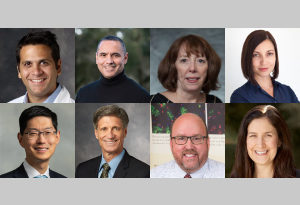
Molecular Imaging in Neuroscience – MIPS Mini-Retreat
Hosted by: Dr. Michelle L. James, PhD
Sponsored by: Department of Radiology, Molecular Imaging Program at Stanford
The MIPS Mini-retreat series brings together members of the MIPS and greater School of Medicine community to discuss current opportunities for research and collaborations. During each mini-retreat we will discuss a different topic and we invite all those interested to attend. The mini-retreats are roughly two hours in length with ample time for discussion throughout. We hope you can join us and spark new collaborations!
Zoom Webinar Information
Webinar URL: https://stanford.zoom.us/j/92903233643
Dial: US: +1 650 724 9799 or +1 833 302 1536 (Toll Free)
Webinar ID: 929 0323 3643
Passcode: 146018
Tentative Agenda (all times are in PST)
8:00-8:05 AM – Opening Remarks – Michelle James, PhD
8:05-8:55 AM – Overview and Imaging-based Collaboration: Department of Neurology, Neurosurgery, Pathology, Psychiatry, and Nuclear Medicine (Frank M. Longo, MD, PhD, Michael Lim, MD, Thomas Montine, MD, PhD, Victor G. Carrión, MD, and Guido Davidzon, MD)
8:55-9:20 AM – Faculty Introductions: All interested MIPS faculty on the call give a 2-minute introduction including their interest in collaborating with Neurology, Pathology, Neurosurgery, and/or Psychiatry and Behavioral Sciences departments.
9:20-9:40 AM – Recent center proposals and possible mechanisms: UDALL Collaboration – Michelle James, PhD and Kathleen Poston, MD, MS
9:40-10:00 AM – Discussion – Moderated by: Michelle James, PhD and Katherine Ferrara, PhD
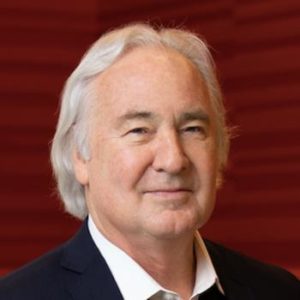
MIPS Seminar Series: Predicting and Preventing Fetal and Neonatal Pathology: Looking Back and Looking Forward
David K. Stevenson, MD
The Harold K. Faber Professor of Pediatrics, Senior Associate Dean, Maternal and Child Health and Professor, by courtesy, of Obstetrics and Gynecology
Lucile Packard Children’s Hospital
Zoom Webinar Details
Webinar URL: https://stanford.zoom.us/s/94584828060
Dial: +1 650 724 9799 or +1 833 302 1536
Webinar ID: 945 8482 8060
Passcode: 481874
12:00pm – 12:45pm Seminar & Discussion
RSVP Here
ABSTRACT
The importance of minimally invasive technologies for interrogating the fetus and newborn, as well as of knowing where a biologic system is headed, not just where it has been, when trying to predict and prevent acquired diseases, will be discussed. Examples of such technologies, such as trace gas analysis and optical reporting of biologic phenomena, and their application to model systems and the human newborn will be presented. The role of advanced computational approaches for the integration and interpretation of large amounts of data derived from these new measurement tools will be emphasized.
ABOUT
Dr. David K. Stevenson is the Harold K. Faber Professor of Pediatrics and has made many impactful contributions to the field of neonatology and pediatrics, including his seminal studies on neonatal jaundice, bilirubin production and heme oxygenase biology. As a neonatologist, his research has focused primarily on neonatal jaundice and more recently on the causes of preterm birth and its prevention. He has held numerous leadership roles at Stanford University School of Medicine, including Vice Dean and Senior Associate Dean for Academic Affairs. He is currently the Senior Associate Dean for Maternal & Child Health, the Co-Director of the Stanford Maternal & Child Health Research Institute, and the Principal Investigator for the March of Dimes Prematurity Research Center at Stanford University. Dr. Stevenson has received many awards, including the Virginia Apgar Award, which is the highest award in Perinatal Pediatrics, the Joseph W. St. Geme, Jr. Leadership Award from the Federation of Pediatric Organizations, the Jonas Salk Award for Leadership in Prematurity Prevention from the March of Dimes Foundation, and the John Howland Medal and Award, the highest award in academic pediatrics. He has served as the President of the American Pediatric Society. In recognition of his achievements, Dr. Stevenson is a member of the National Academy of Medicine.
Hosted by: Katherine Ferrara, PhD
Sponsored by: Molecular Imaging Program at Stanford & the Department of Radiology
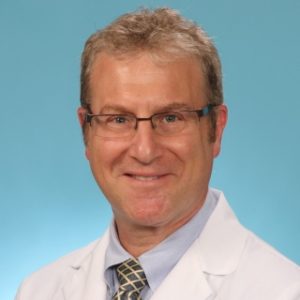
MIPS Seminar Series: Title TBA
Steven Paul Poplack, MD
Professor of Radiology (Breast Imaging)
Stanford University Medical Center
Location: Coming soon!
12:00pm – 12:45pm Seminar & Discussion
RSVP: Coming soon!
ABSTRACT
Coming soon!
ABOUT
Coming soon!
Hosted by: Katherine Ferrara, PhD
Sponsored by: Molecular Imaging Program at Stanford & the Department of Radiology
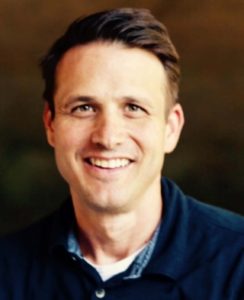
MIPS Seminar Series: Title TBA
Matthew Bogyo, PhD
Professor of Pathology and of Microbiology and Immunology and, by courtesy, of Chemical and Systems Biology
Stanford University
Location: Coming soon!
12:00pm – 12:45pm Seminar & Discussion
RSVP: Coming soon!
ABSTRACT
Coming soon!
ABOUT
Dr. Bogyo received a B.Sc. degree in Chemistry from Bates College in 1993 and a Ph.D. in Biochemistry from the Massachusetts Institute of Technology in 1997. After completion of his degree he was appointed as a Faculty Fellow in the Department of Biochemistry and Biophysics at the University of California, San Francisco. Dr. Bogyo served as the Head of Chemical Proteomics at Celera Genomics from 2001 to 2003 while maintaining an Adjunct Faculty appointment at UCSF. In the Summer of 2003 Dr. Bogyo joined the Department of Pathology at Stanford Medical School and was appointed as a faculty member in the Department of Microbiology and Immunology in 2004. His interests are focused on the use of chemistry to study the role of proteases in human disease. In particular his laboratory is currently working on understanding the role of cysteine proteases in tumorgenesis and also in the life cycle of human parasites and bacterial pathogens. Dr. Bogyo currently serves on the Editorial Board of Biochemical Journal, Cell Chemical Biology, Molecular and Cellular Proteomics and is an Academic Editor at PLoS One. Dr. Bogyo is a consultant for several biotechnology and pharmaceutical companies in the Bay Area and is a founder and board member of Akrotome Imaging and Facile Therapeutics.
Hosted by: Katherine Ferrara, PhD
Sponsored by: Molecular Imaging Program at Stanford & the Department of Radiology

Roxana Daneshjou, MD, PhD
Assistant Professor, Biomedical Data Science & Dermatology
Assistant Director, Center of Excellence for Precision Heath & Pharmacogenomics
Director of Informatics, Stanford Skin Innovation and Interventional Research Group
Stanford University
Title: Building Fair and Trustworthy AI for Healthcare
Abstract: AI for healthcare has the potential to revolutionize how we practice medicine. However, to do this in a fair and trustworthy manner requires special attention to how AI models work and their potential biases. In this talk, I will cover the considerations for building AI systems that improve healthcare.

Mildred Cho, PhD
Professor of Pediatrics, Center of Biomedical Ethics
Professor of Medicine, Primary Care and Population Health
Stanford University
Title: Facilitating Patient and Clinician Value Considerations into AI for Precision Medicine
Abstract:
For the development of ethical machine learning (ML) for precision medicine, it is essential to understand how values play into the decision-making process of developers. We conducted five group design exercises with four developer participants each (N=20) who were asked to discuss and record their design considerations in a series of three hypothetical scenarios involving the design of a tool to predict progression to diabetes. In each group, the scenario was first presented as a research project, then as development of a clinical tool for a health care system, and finally as development of a clinical tool for their own health care system. Throughout, developers documented their process considerations using a virtual collaborative whiteboard platform. Our results suggest that developers more often considered client or user perspectives after changing the context of the scenario from research to a tool for a large healthcare setting. Furthermore, developers were more likely to express concerns arising from the patient perspective and societal and ethical issues such as protection of privacy after imagining themselves as patients in the health care system. Qualitative and quantitative data analysis also revealed that developers made reflective/reflexive statements more often in the third round of the design activity (44 times) than in the first (2) or second (6) rounds. These statements included statements on how the activity connected to their real-life work, what they could take away from the exercises and integrate into actual practice, and commentary on being patients within a health care system using AI. These findings suggest that ML developers can be encouraged to link the consequences of their actions to design choices by encouraging “empathy work” that directs them to take perspectives of specific stakeholder groups. This research could inform the creation of educational resources and exercises for developers to better align daily practices with stakeholder values and ethical ML design.

Ifeoma Okoye MBBS, FWACS, FMCR
Professor of Radiology and Director
University of Nigeria Centre for Clinical Trials
College of Medicine, University of Nigeria
Title: Deepening Collaboration with Stanford & Pennsylvania, Toward Developing Joint Strategies to Close the ‘Cancer Care’ & ‘Clinical Trial Volume’ Gap in LMICs
Abstract
In this seminar I will be addressing the dire cancer survival outcomes in low- and middle-income countries (LMICs), with a particular focus on Sub-Saharan Africa. Cancer survival rates in Sub-Saharan Africa are alarmingly low. According to the World Health Organization, cancer deaths in LMICs account for approximately 70% of global cancer fatalities. In Nigeria, the five-year survival rate for breast cancer, one of the most common cancers, stands at a disheartening 10-30%, compared to over 80% in high-income countries. This stark disparity highlights the urgent need for sustained comprehensive cancer interventions in our region.
Here, I will discuss the pivotal role in the cancer control sphere, of a new software, ONCOSEEK, capable of early detecting 11 types of Cancers! It’s particular emphasis on the Patient Perspective, which aligns with our ethos of need for holistic patient care. In addition I will discuss recent developments on collaborative effort with the Gevaert lab at Stanford University and the University of Pennsylvania.

Sophie Ostmeier, MD
Postdoctoral Scholar
Department of Radiology
Stanford School of Medicine
Title: GREEN: Generative Radiology Report Evaluation and Error Notation
Abstract
Evaluating radiology reports is a challenging problem as factual correctness is extremely important due to the need for accurate medical communication about medical images. Existing automatic evaluation metrics either suffer from failing to consider factual correctness (e.g., BLEU and ROUGE) or are limited in their interpretability (e.g., F1CheXpert and F1RadGraph). In this paper, we introduce GREEN (Generative Radiology Report Evaluation and Error Notation), a radiology report generation metric that leverages the natural language understanding of language models to identify and explain clinically significant errors in candidate reports, both quantitatively and qualitatively. Compared to current metrics, GREEN offers: 1) a score aligned with expert preferences, 2) human interpretable explanations of clinically significant errors, enabling feedback loops with end-users, and 3) a lightweight open-source method that reaches the performance of commercial counterparts. We validate our GREEN metric by comparing it to GPT-4, as well as to error counts of 6 experts and preferences of 2 experts. Our method demonstrates not only higher correlation with expert error counts, but simultaneously higher alignment with expert preferences when compared to previous approaches.

Jeong Hoon Lee, PhD
Postdoctoral Researcher
Department of Radiology
Stanford School of Medicine
Title: Leveraging Patch-Level Representation Learning with Vision Transformer for Prostate Cancer Foundation Models
Abstract:
Recent advancements in self-supervised learning (SSL), emerging as an effective approach for imaging foundation models, enable the effective pretraining of AI models across multiple domains without the need for labels. Despite the rapid advancements, their application in medical imaging remains challenging due to the subtle difference between cancer and normal tissue. To address this limitation, in this study, we propose an AI architecture ProViCNet that employs the vision transformer (ViT) based segmentation architecture with patch-level contrastive learning for better feature representation. We validated our model in prostate cancer detection tasks using three types of magnetic resonance imaging (MRI) across multiple centers. To evaluate the performance of feature representation in this model, we performed downstream tasks with respect to Gleason grade score and race prediction. Our model demonstrated significant performance improvements compared to the state-of-the-art segmentation architectures. This study proposes a novel approach to developing foundation models for prostate cancer imaging overcoming SSL limitations.